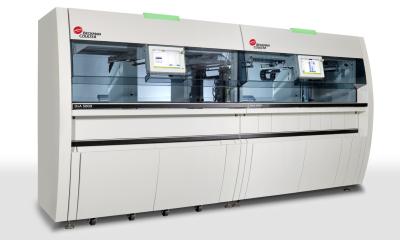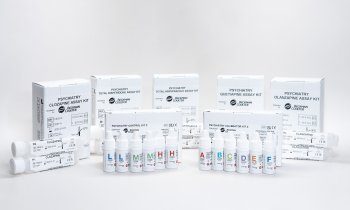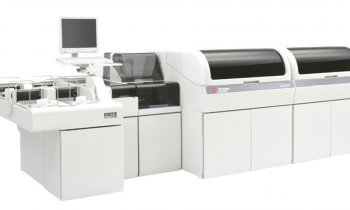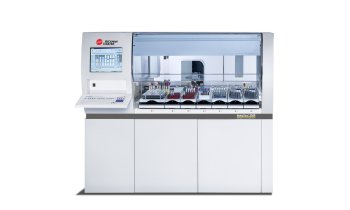Prostate cancer risk assessment
Novel p2PSA marker more accurate than PSA testing
The effectiveness of PSA (prostate-specific antigen) screening on reducing prostate cancer mortality was given a boost in 2009 when the conclusive findings from the 10-year European Randomized Study of Screening for Prostate Cancer (ERSPC) -- the world’s largest prostate cancer screening study – were published.

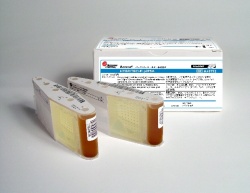
From 1992, the ERSPC study randomized 162,000 men, aged 55 to 69, in seven European countries to either a screening arm or a control group. Those screened were given a blood test to detect PSA levels: if it was 3.0ng/ml or more, they were offered a biopsy. The study showed that PSA screening delivers a 20% reduction in mortality from prostate cancer.
However, separate ERSPC findings also confirm that ~30% of detected cancers actually have non-aggressive features and are ‘indolent’ or slow growing. That’s because PSA testing is sensitive but not specific. Dr Bernard Cook, group manager scientific and professional relations immunodiagnostics at Beckman Coulter, Inc., USA, has pointed out: ‘With limited ability to discriminate between cancer and benign disease, screening for prostate cancer with PSA remains contentious. While it can help detect some life-threatening tumours, the argument against it is the risk of patients suffering unnecessary and potentially harmful tests and treatment.’
With its new prostate disease marker, p2PSA, and the Prostate Health Index (phi) Beckman Coulter reports that it has made a significant breakthrough in improving the specificity of prostate cancer bio-marker assessment, which helps reduce unnecessary biopsies.
Named Access Hybritech p2PSA, the new marker measures the [-2]proPSA molecule, an isoform of free PSA. Studies have demonstrated that when p2PSA measurements are combined with Access Hy-britech PSA and free PSA measurements, the resulting index demonstrates a significant improvement in clinical specificity for prostate cancer detection, relative to PSA and % fPSA alone, in the PSA range 2–10 ng/mL in men >50 years and with non-suspicious digital rectal examination (DRE) findings.(1)
The Beckman Coulter Prostate Health Index is derived by combining the results of three automated blood tests, Access Hybritech PSA, free PSA and the new p2PSA and is now available in Europe for use on the Beckman Coulter Access and UniCel DxI Immunoassay Systems. ‘When phi is installed, the system automatically calculates and reports the Prostate Health Index test results.’ John Blackwood, vice president and general manager at the Beckman Coulter Immunoassay Business Centre, said. ‘The phi score provides physicians with additional critical information to guide follow-up and treatment decisions for men with an elevated total PSA, including the challenging total PSA range of 2-4 ng/ml.’ The firm has also launched an educational website (ProstateHealthIndex.org) to inform patients, physicians and laboratory personnel about p2PSA and how to use the new Prostate Health Index. The website also provides links to credible medical resources, the latest unbiased scientific studies and details the benefits of the latest blood test.
21.05.2010




